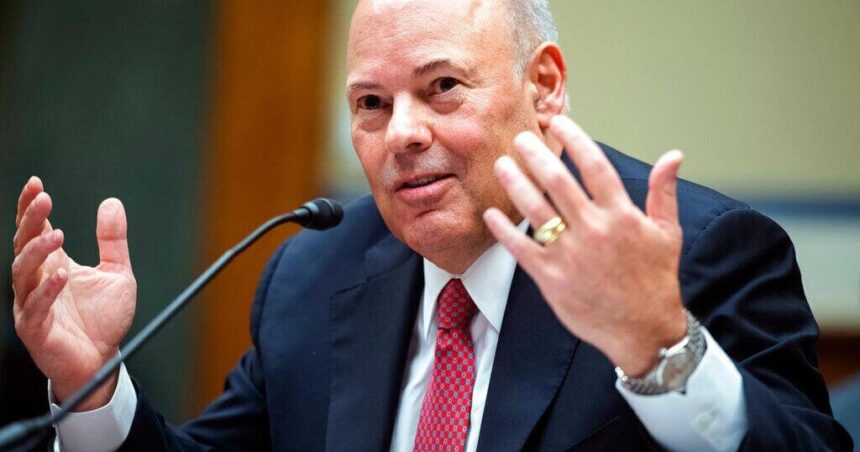The U.S. Postal Service is apparently ending its contract for air service that supports priority and express mail in Montana and focusing on ground transportation, prompting the ire of Sen. Jon Tester.
Tester sent a scathing letter to Postmaster General Louis DeJoy on Thursday.
In this Aug. 24, 2020, file photo, Postmaster General Louis DeJoy testifies during a House Oversight and Reform Committee hearing on the Postal Service on Capitol Hill in Washington.
“I write today to express my concerns about the sudden decision to end air service for priority and express mail in Montana,” Tester said. “At a time when Montanans are already reporting unacceptably inconsistent delivery from the USPS, cutting air transportation will further degrade mail service in our rural state. Once again, it appears that the USPS is turning its back on rural America and attempting to solve its budget woes on the backs of our nation’s rural citizens.”
Tester said that he’s been notified that the USPS gave its longtime contracted air service provider, Alpine Air of Salt Lake City, just one week’s notice that their contract with USPS would not be extended and air service across Montana would be terminated.
People are also reading…
Kim Frum, a USPS strategic communications specialist, said the change is consistent with the Postal Service’s 10-year strategic plan of optimizing the use of air and surface transportation throughout its network.
“Just to be clear, the Postal Service is not suspending any mail delivery or products such as Priority Mail and Priority Mail Express,” she said. “It is simply switching to more reliable surface transportation.”
The 10-year plan’s two-year progress report states that reducing air service saves the Postal Service money.
“Cost savings also have been realized by reducing our dependence on air transportation, optimizing our ground transportation network, improving employee staffing and scheduling, eliminating redundant processing operations, and expanding the use of automation for processing packages,” the report states.
The report also says that hiring air service contractors is expensive.
“(The Postal Service) has also refocused our use of contracted air transportation since we do not own a private fleet of airplanes,” the report says on page 20. “Before our modernization plan began, we were beholden to the complexities and inefficiencies of the airline industry for transporting mail long distances to meet our service standards. This dependency was especially evident during our peak season when weather disruptions used to make the air transportation system very unreliable.”
USPS has faced criticism from elected officials in Montana for its plan to consolidate Missoula’s sorting and delivery facility and move some mail processing to Spokane.
Tester and Sen. Steve Daines were both opposed to that plan. Earlier this spring, after much criticism, DeJoy announced that the plan to move some mail processing from Missoula to Spokane would be postponed until at least January.
A spokesperson for Daines could not be immediately reached on Friday.
Tester said he’ll be requesting additional information from DeJoy in the coming weeks.
“As a large and rural state with hundreds of miles between urban areas, air mail delivery by air service is critical for allowing fast delivery of essential documents, prescriptions, and goods,” he said. “This is especially true during the winter where extreme weather can often makes long stretches of road unsafe or even impassable.”
David Erickson is the business reporter for the Missoulian.





